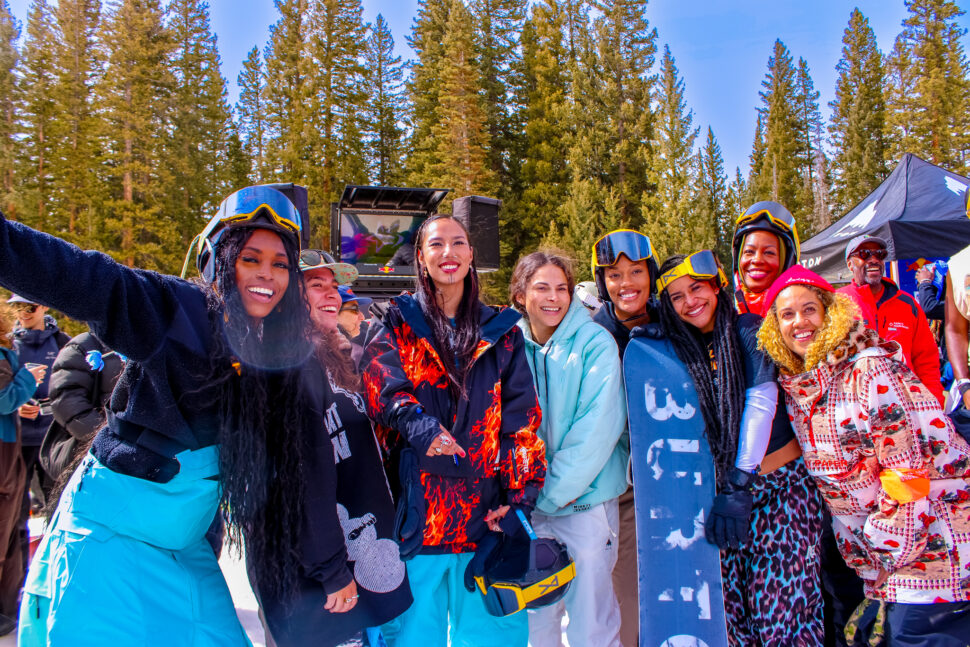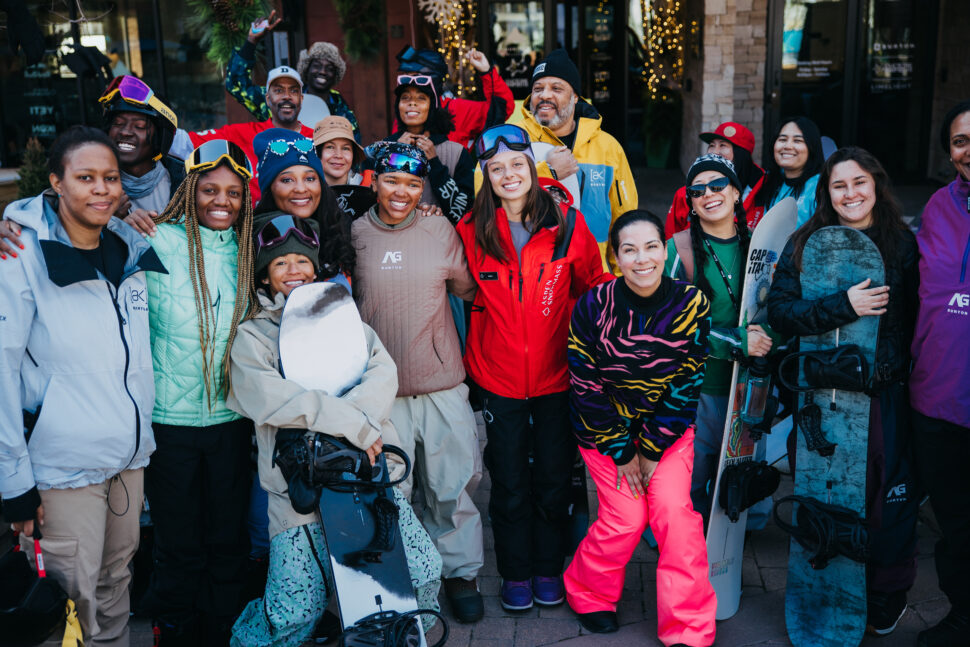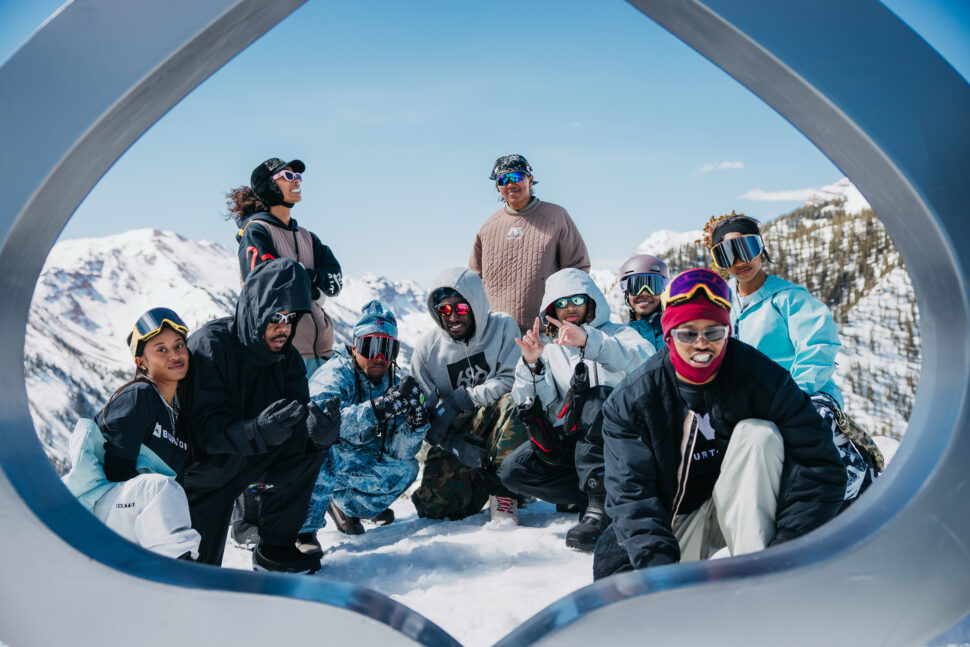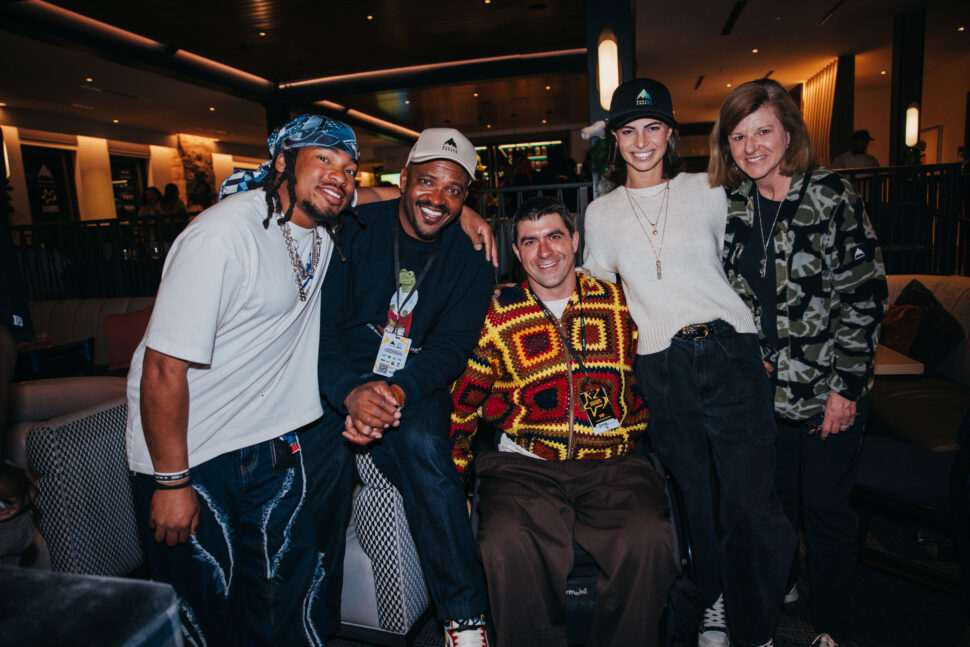When I first arrived at Culture Shifters in Aspen, Colorado, I didn’t know what to expect. As a Black woman who had never snowboarded — nor even envisioned myself trying — I wasn’t sure if I belonged in a space so often stereotyped as exclusive and homogenous. But what I experienced at Culture Shifters was unforgettable, authentic, and something I’ll cherish for the rest of my life.

Founded in 2020 by professional snowboarder Zeb Powell (the first Black athlete to win gold at the X Games) and television host and sports commentator Selema Masekela, Culture Shifters is an annual event that brings together BIPOC riders, artists, athletes, advocates, and creators. Their mission is simple but radical: to “make the mountains more colorful” — to create a future where snowboarding is truly diverse, inclusive, and empowering for all skill levels and backgrounds.
“This is just the start,” Powell told Travel Noire, reflecting on the event’s five-year journey. “We’re not just building a snowboarding event — we’re building a network. A movement. It’s infectious. You feel it and you just want to go home and tell your friends.”

At Culture Shifters, beginners and seasoned riders alike took to the snow. Lessons were offered, encouragement was abundant, and the air was charged with a sense of joyful purpose. It wasn’t just about riding; it was about celebrating the trailblazers who are shaping a more equitable outdoor future. The event literally gave flowers to individuals and organizations leading this change, honoring groups like EDGE Outdoors, Unlikely Riders, High Fives Foundation, Black Outside, Chill Foundation, Indigenous Women Outdoors, and more.
Burton Snowboards, the global snowboarding brand supporting Culture Shifters, has been instrumental in this transformation. Ashley LaPorte, Burton’s Global SVP of People & Impact, shared that snowboarding is now the most racially diverse snow sport in North America, nearly mirroring the general U.S. population. “For snowboarding to stay relevant and loved, it needs to embrace all kinds of people, and we’re starting to see that happen,” she explained.
The investment goes beyond visibility. Each year, Burton commits $2 million to grassroots organizations working on outdoor access and climate justice. The company has also embedded diversity at every level internally, offering real mentorship and resources to ensure BIPOC and women leaders thrive.
“I think a lot of companies invest because it’s trendy,” LaPorte said. “But at Burton, this work is in our DNA. Snowboarding itself only exists because people fought to buck the status quo.”
That history was impossible to ignore during my time at Culture Shifters. Jake Burton Carpenter, the founder of Burton Snowboards, helped pioneer the sport at a time when snowboarders were often banned from ski resorts altogether. Rather than wait for permission, he and other early riders simply showed up, carving their own paths down the mountains and challenging the old rules. That spirit of joyful resistance — of creating space where none previously existed — was palpable throughout the weekend.
In between group rides, fireside chats, and community dinners, we laughed, tumbled down bunny slopes, and encouraged each other to keep going — not just on the snow, but in life.

For Selema Masekela, Culture Shifters represents a culmination of his life’s mission. Growing up surfing and snowboarding in predominantly white spaces, he often felt like an outsider, forced to prove he belonged both to the broader culture and sometimes even within his own community. Now, through Culture Shifters, he’s reclaiming that space.
“When you suddenly realize your people have seen you, you realize you have permission. Permission to make room for others,” Masekela shared. “This isn’t just about Black excellence or BIPOC excellence in silos. This is about real, thoughtful community-building — for Indigenous, brown, queer, and disabled folks too. Watch what we can do together.”
The event’s impact is already rippling outward. Many attendees — including myself — are committed to continuing snowboarding beyond Aspen, spreading the spirit of Culture Shifters back home. Powell dreams of expanding the event into festivals, pop-ups, and local activations to make it even more accessible.
“We’re inspiring people to start their own versions of Culture Shifters in their own cities and mountains,” Powell said. “This is just the beginning. Imagine what it’s going to look like in 10 years.”

For me, Culture Shifters wasn’t just an event. It was an invitation, an open door to a new community, a new sport, and a new belief in what’s possible when joy, activism, and community intersect. I arrived hesitant and left hopeful, with a snowboard under my feet, a community at my side, and a heart full of gratitude.
And for the first time in my life, I can say: I see myself on the slopes.





